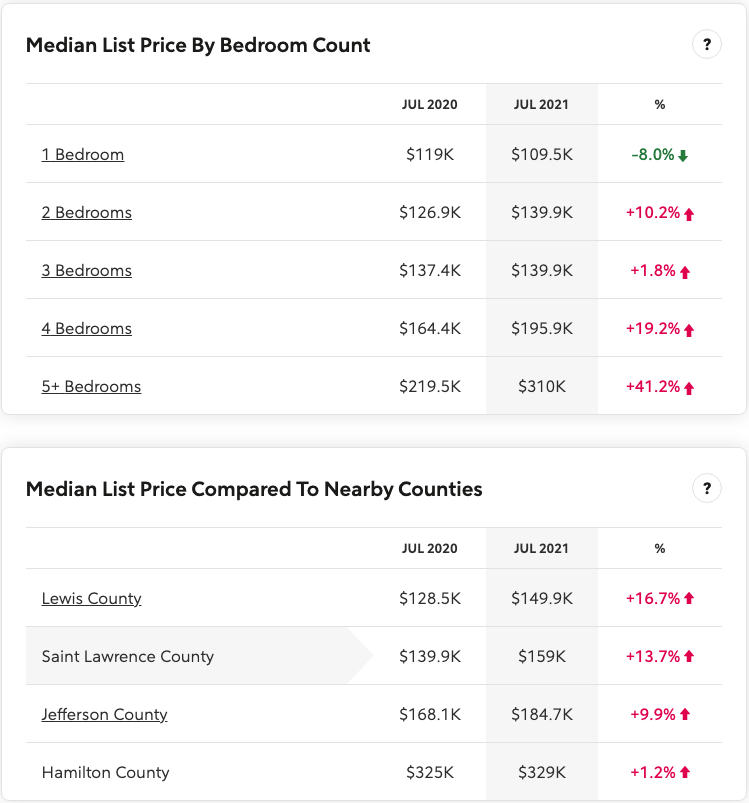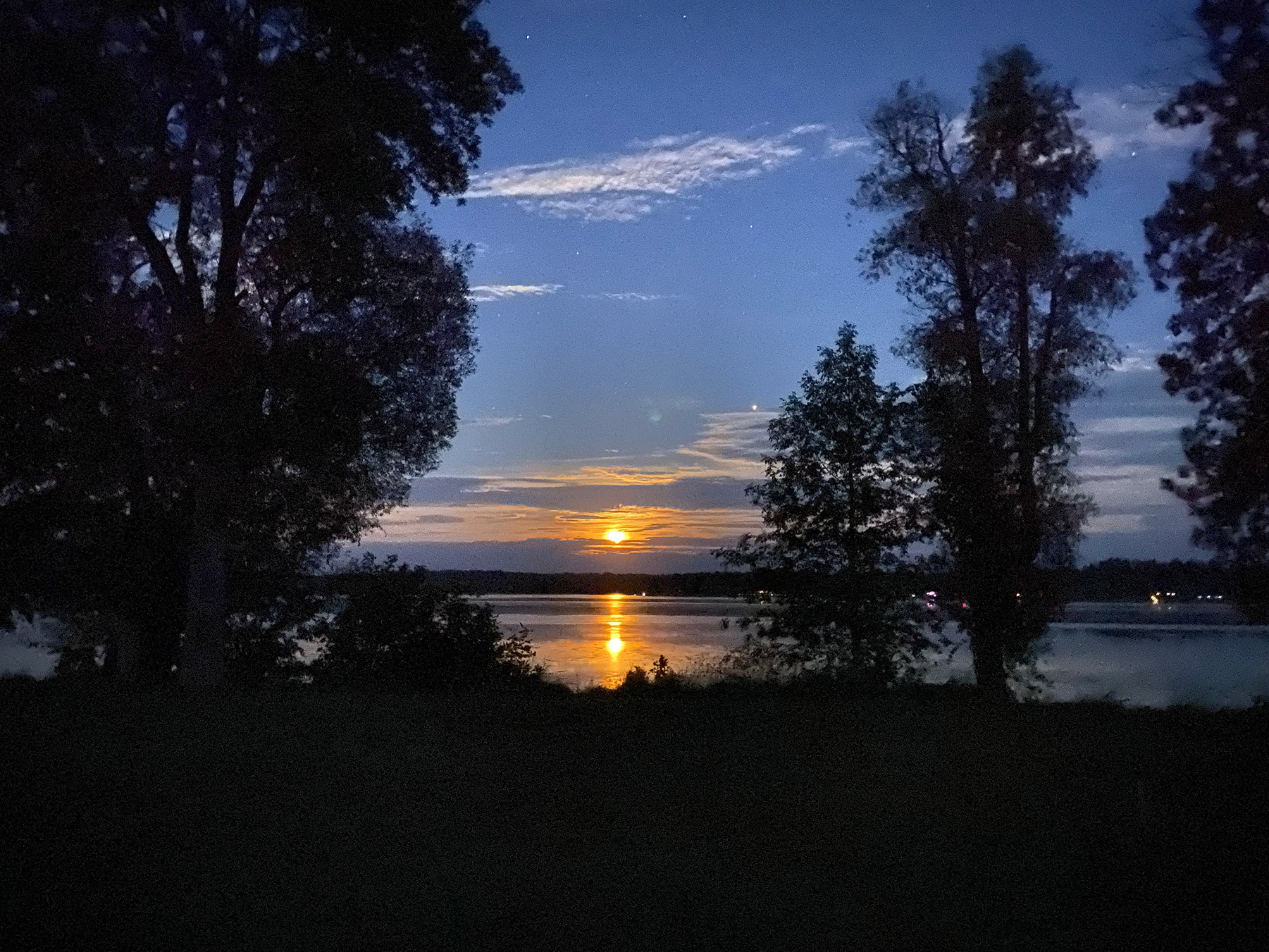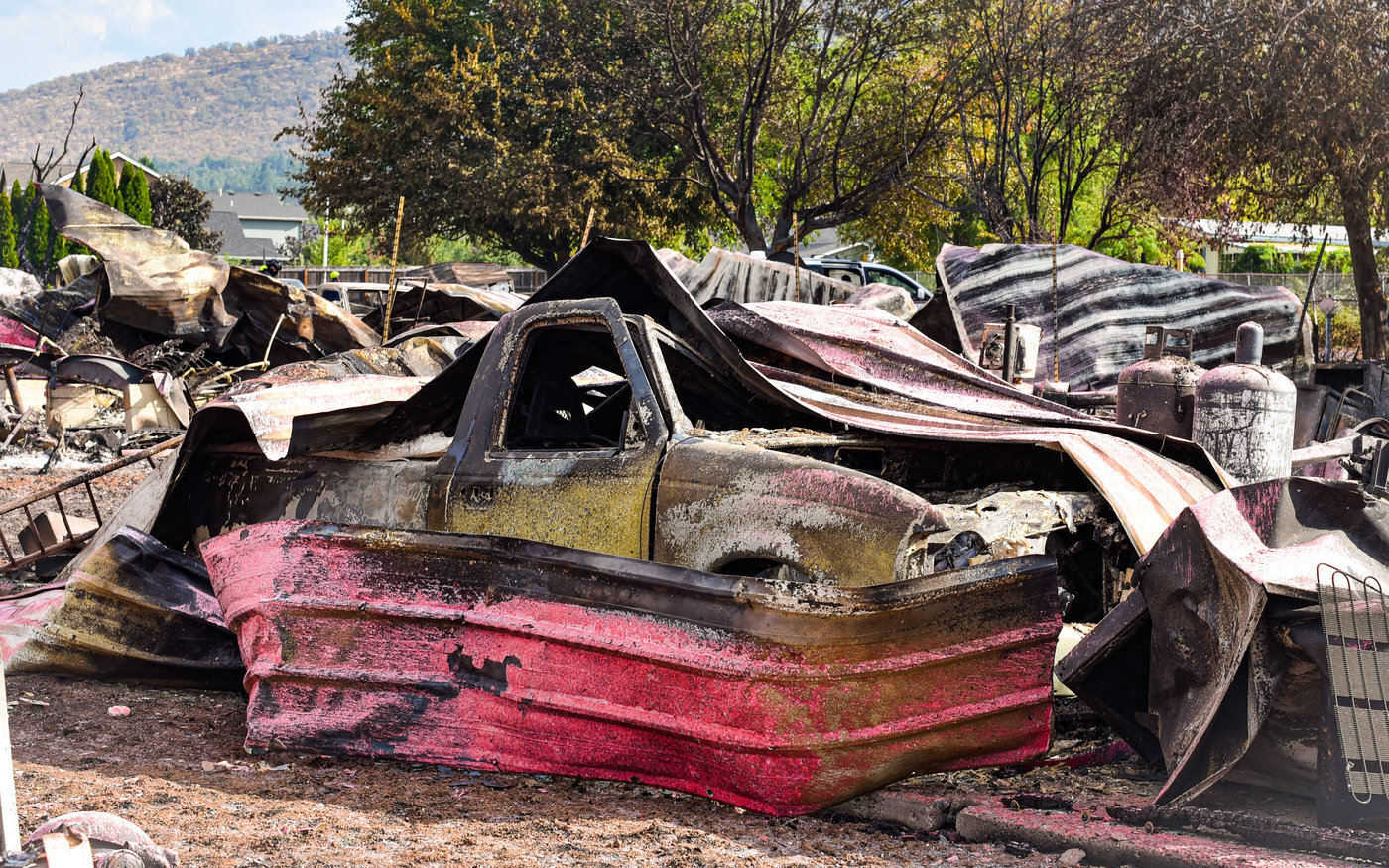
It was late spring when the fire came through Talent and Phoenix. Only by the blind charity of circumstance did there happen to be a wind running through the valley to the northwest — without that, the blaze could easily have taken over Ashland instead. That sobering truth has never been lost on me.
Since then I have gone through the classic stages of grief: first denial, then anger, and finally acceptance. I don't think there are adequate words for what is in store for us as a species. It is often said that our greatest strength and our greatest weakness, as humans, is our ability to constantly adapt. It's a blessing because it allows us to stay sharp, to adjust to fluctuating conditions, and to devise solutions for problems that have not yet come to pass. It is a weakness because, much like the proverbial frog in a pot of boiling water, we just don't know when to jump. Ironically we are both supreme innovators and completely unable to deal with change in a more general sense. Every subsequent generation has been forced to use a combination of force and coersion to bring older generations on board with the most important adjustments to our society: women's suffrage, civil rights, basic work protections – these have all been earned through very difficult and tenuous politicking between factions that so often boiled down to young versus old. But now it has become even more complicated.
You can trace these new lines of division all the way back to Reagan's term when the progressive tax regime of the New Deal was dismantled. The newest and most important differentiator is now simply wealth: ever since the twin gut-punches of social media and aggressive defunding of the 4th estate, along with the kind of financial opacity that stems directly from Citizens United, we can barely see the enemy for what it is: a dangerous and sociopathic addiction to the trappings of wealth and power, on the one hand, and a truly stunning ability to ignore this imbalance in return for an ever-decreasing share of profits on the other. We now suffer globally from the Stockholm syndrome. We have fallen in love with our captors, and they in turn have fallen in love with their role as abusers and saints of 'tough love.'
The World Bank, addicted to the privatization of water resources.
The United States, addicted to perpetual war.
The United Kingdom, increasingly obsessed with handing over their health system to capitalistic ghouls in the jingoistic name of liberty.
I could go on.
We lack the political will to do anything substantive about it. Just do a quick search for greenwashing on YouTube, if you want to lose a few hours diving into the rabbit hole. When that fire came to town, I knew it was a problem. And I knew that it was only going to get worse. I had no idea how right I would be, nor how quickly that would become apparent. My heart breaks for the entire West Coast of the United States. Take a look at the water levels for the Colorado River right now; take a look at the horrendous season for wildfire that we've had in California and Oregon and Washington and Nevada; British Columbia. A short respite between October and April will not be enough to recover. This pummeling of our civic resources season after season will eventually tear apart the fabric of everything we had built over the last few decades, if not centuries. But you wouldn't know it yet from the patterns that we are seeing in real estate and migration. As it turns out, this is the kind of lesson that you learn in pieces, not all at once. Because leaving friends and family is hard. Missing out on your favorite taco truck is hard. Embracing the unknown is hard. And finding a way to survive, through it all, is the most difficult of all. At one point, we may have thought that COVID would bring a new era of home offices and social distancing. But we never had a plan for what to do about the children; and that to me is the most difficult tragedy to make sense of. None of this should be a surprise, yet we are forcing children back into the classroom before we have a way to protect them; forcing teachers to make a devil's bargain between livelihood and physical well-being. it's easy to blame the unvaccinated, and I certainly can see the attraction. They are easy targets, and they certainly do bear some culpability in this complex and evolving social equation.
But the problem here is also a systemic one. This tempestuous and unpredictable marketplace of soundbites that masquerade as world views was made possible years ago by a largely toothless left wing and a right wing that is almost literally drowning in cash flow. The incessant cognitive dissonance now runs both wide and deep: we spend $2 trillion on an unwinnable war in Afghanistan while American citizens get crushed by routine medical bills; we speak without irony of the inexcusable largesse of food stamps and unemployment insurance while billionaires are inexplicably subsidized with public dollars for recreational trips to outer space. I could go on.
***
When we decided to leave Oregon, we weren't exactly sure where to go. My main motivation was just the idea that our real estate market was not going to grow for much longer. Yes, we could have stayed for a few more months, perhaps a year or two, and made more profit on the sale of our house. At the time I had my eyes on a work-study program in Canada and COVID absolutely put us over the edge. Why not jump now? – we said, as the town next to us burned to the ground in less than the time it takes to fly from Medford to O'Hare. if we lose this house, we will lose everything.
The unknown is looking pretty good right now.
We came to New York in April, when the trees were still bare and the air was still cold. We flew to Syracuse, rented a car, and made our way to the Stone Fence Resort just outside Ogdensburg. We juggled Airbnbs and hotel rooms for almost three months until we settled in at the farm where we are now. It was discomfiting and suspenseful and at times really stressful. Navigating the real estate market, making new friends, and living out of a suitcase for months on end was beginning to take a toll on all of us. But at the same time we were exploring and having new experiences and that has always been the elixir of my life. What we found here is spectacular, and largely not on anyone's radar yet. With the rest of country getting priced out of new homes by an ultra-competitive market, St Lawrence county is growing slowly by comparison.

What we stumbled on in our effort to stay close to Ottawa was a region that is still very affordable, has almost no natural disasters to speak of, and enjoys consistent rainfall throughout the year. Of course, there is not much in the way of shopping, aside from a few big box stores, but as a place to start a new life and create a sense of resiliency against an unknown future — by stocking the pantry, growing as much food as possible at home, and getting used to homeschooling the children — this place checks all the boxes. And we get to live on a beautiful lake that I find myself constantly taking pictures of. Everyone keeps warning us about the winter, and I'll update about that as we get through it. But because where we were in southern Oregon has had a few tough years in a row now — between wildfire, stagnant smoke, bad air quality, and now a huge spike in COVID cases — there is less and less of that idyllic, warm-summer Mediterranean climate to hold on to.
For better or for worse, this is our new life now — and we were very lucky to be in a position to make that kind of life-altering adjustment so quickly. We are among the first, but we will not be the last: every new year will bring a larger wave of climate refugees to the places that feel like a safe haven. We're not seeing much in terms of activity all the way up here in North Country — at the moment the US is seeing much more immigration to places like Texas, Florida, and Arizona — but these lessons are the kind that you learn in pieces.
For now I will enjoy the peace and quiet. Something tells that it's not going to last.

We've built a house of cards on the fickle gap between what is right and what is easy. We call that freedom: the freedom to throw your fast food and beer cans from your car window without fear of repercussion; the freedom to pay no taxes because your business is registered in the Cayman islands; the freedom to pay your workers half of what they need to live; the freedom to have wild and erratic justice fantasies about imaginary criminals and their contrived racial foibles. This is earnestly equated with the freedom to be gay and have a wedding cake, or the freedom to be poor and send your kid to a decent school. The freedom to not wear a mask is weighed — quite seriously in some cases — against the freedom to speak freely, and the freedom to live a life without oppression. We really have some soul-searching left to do as a species.

I have an amazing wife and beautiful children and I want desperately to feel like the future is not something that I need to be afraid of. How bad is it, and how bad is it going to get? I think perhaps the only comfort is that we are going to find out very soon.